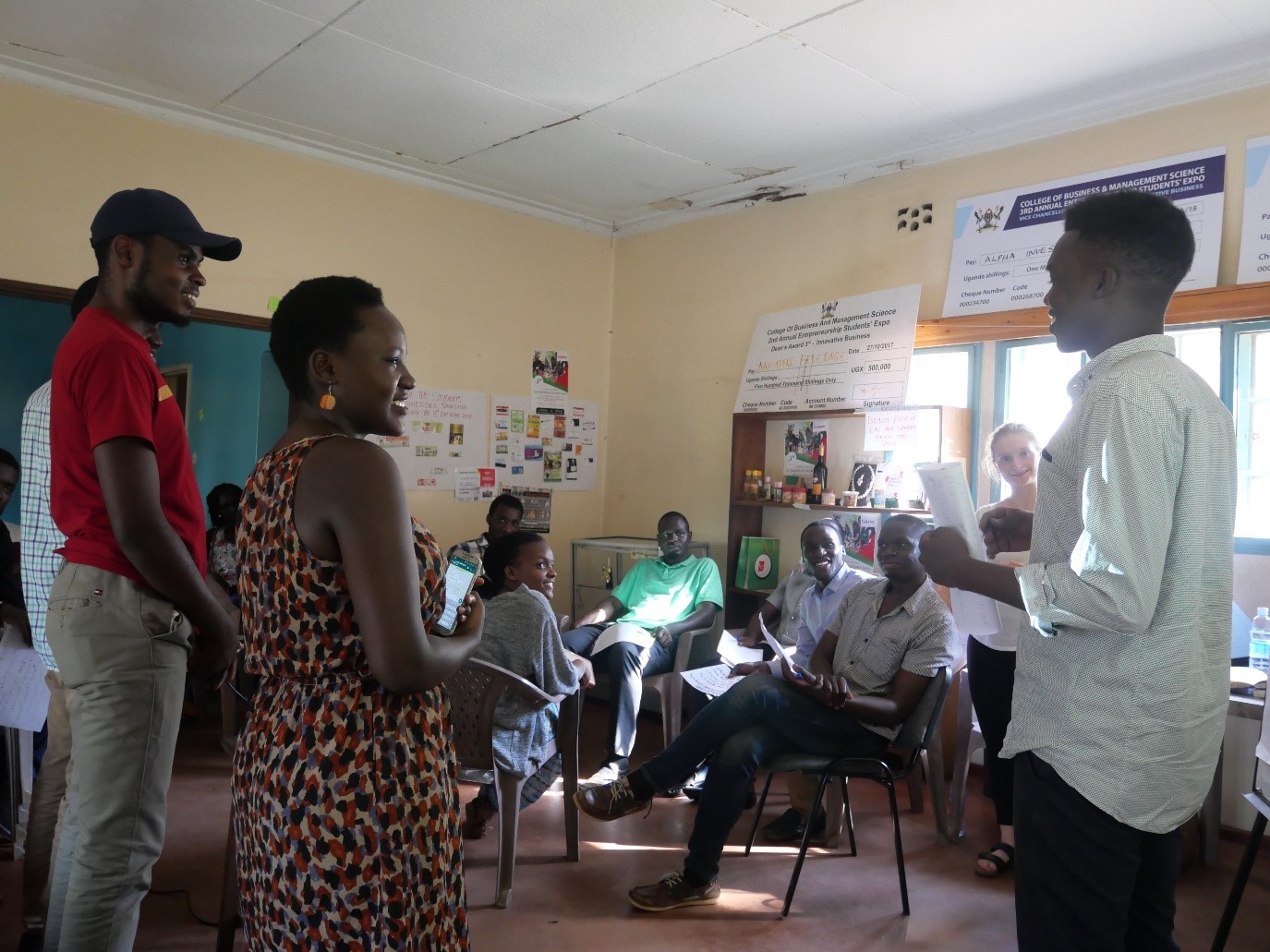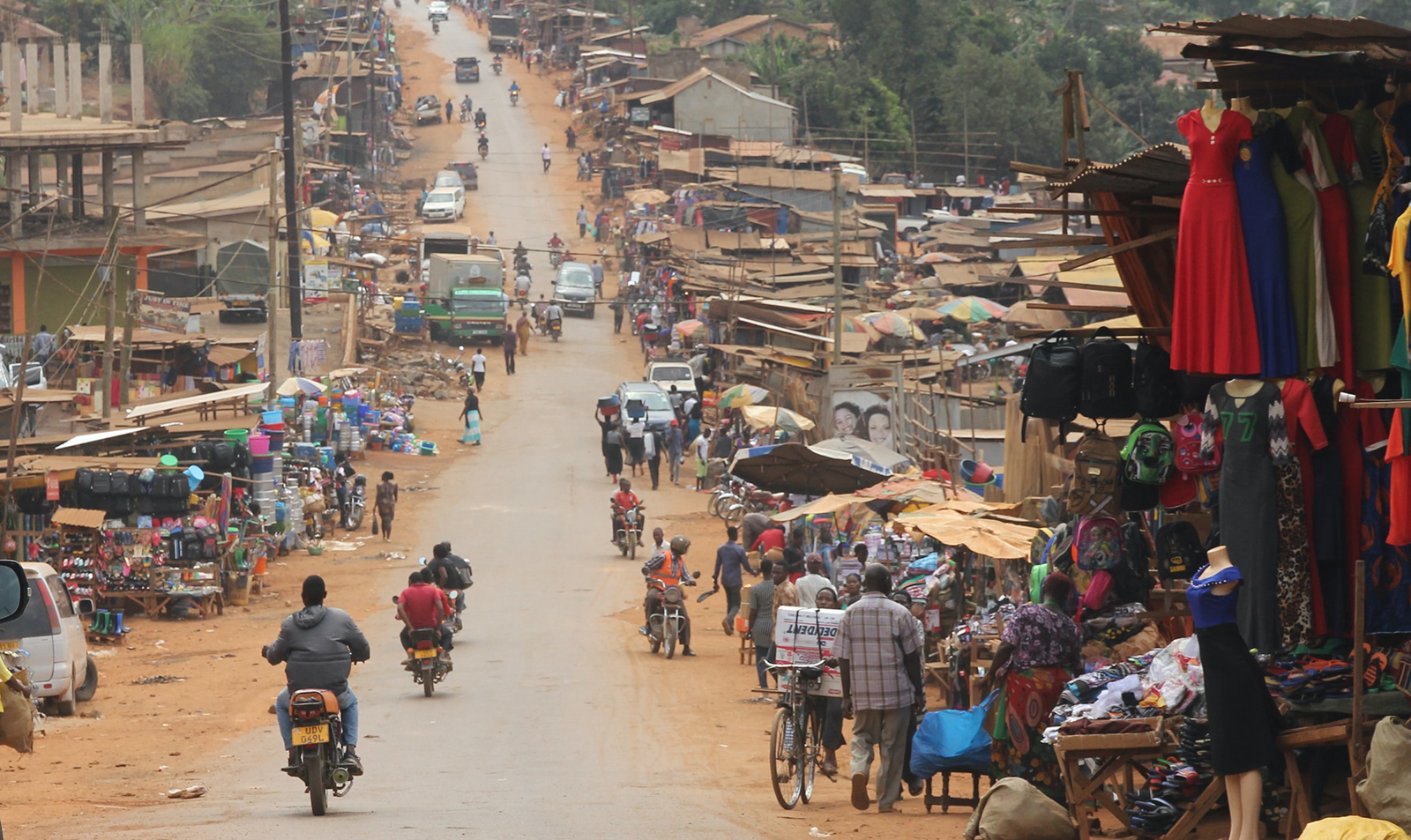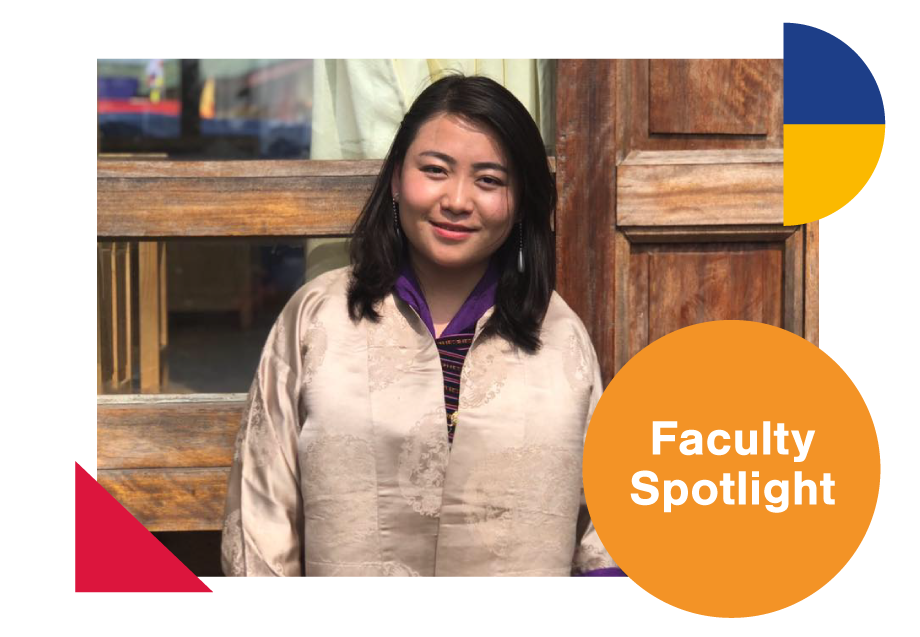Student-led workshops in MakEIC, Kampala, Uganda. Photo: Eva Duran Sánchez
Students explored co-working and innovation culture in Uganda as a part of this year’s PBL East Africa projects. Their findings are applied in campus development – and beyond.
Innovation and Entrepreneurship Centre of Makerere University presented students from Aalto University and Makerere a set of challenging questions this spring. What is the core of collaborative spaces? How to create such spaces on campus?
‘At first, we combined our knowledge and hosted a series of workshops. Later we also engaged other students in the design of the centre,’ says master student Sara Heikonen, who participated in the project on Aalto’s Sustainable Global Technologies studio course.
The case is also a part of PBL East Africa – a three-year collaboration between Aalto University, Makerere University, University of Dar es Salaam and University of Nairobi. This year the student teams from the four universities explored campus innovation ecosystems, sports education, and maternal healthcare.
Co-creation requires shared meaning
In Uganda, the student team developed a personal approach to co-creation. According to the group, it’s necessary to start by taking one step back – to share cultural knowledge and negotiate meanings.
‘We developed a dictionary of relevant words for our team, for example, “interaction”, “grey water”, “safety”, “wetland”, and our interpretations about them. It was interesting to find out that definitions for “grey water” were similar to each other, but interpretations of “safety” or “interaction” differed significantly,’ Heikonen says.
This notion guided the group to further focus on the factors behind successful co-working spaces. The Innovation and Entrepreneurship Centre is run by motivated people, both students and professors.
‘We found out that an active community is the most important element of a successful co-working space. Through the collaboration of these talented people the centre will continue to be self-sustained,’ Heikonen says.
Wastewater recycling on campus
In addition, the engineering students of Makerere University focused on technical aspects of innovation. The project Wet Technik addresses water shortage and wastewater treatment issues.
‘We designed a system that can upcycle grey water. It is a constructed wetland system that uses a mix of pumice and plastic from recycled waste bottle caps,’ says engineering student Dennis Ssekimpi.
The system is designed for the Makerere University campus to reduce the cost of water usage while minimizing environmental pollution from hazardous water. Now in May, the students are going to take their work to the next level.
‘Our team competes in the final of Wege Prize Awards, an international design competition for students. We believe that the solution can have broader impact in the society,’ Ssekimpi says.
Join the SGT Studio Final Event 2019 on Aalto University campus! The event is organized on Wednesday May, 15 at 10:00-12:00 in Harald Herlin Learning Center, lower floor, Otaniementie 9, Espoo, Finland.
More information
Facebook event: Stories from Nepal, East Africa and Mexico – SGT Studio
Tags:
PBL East Africa,
SGT Studio
This post was written by AGI



